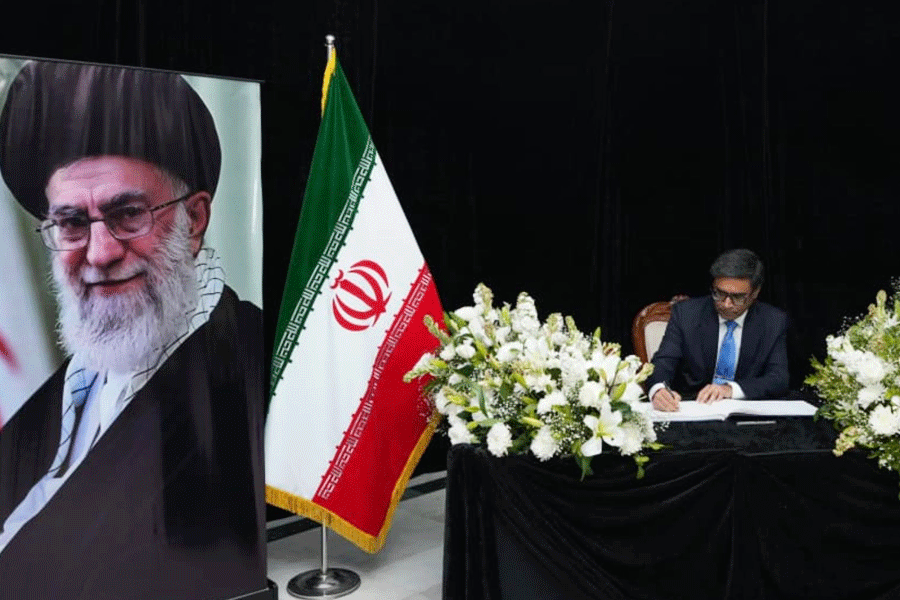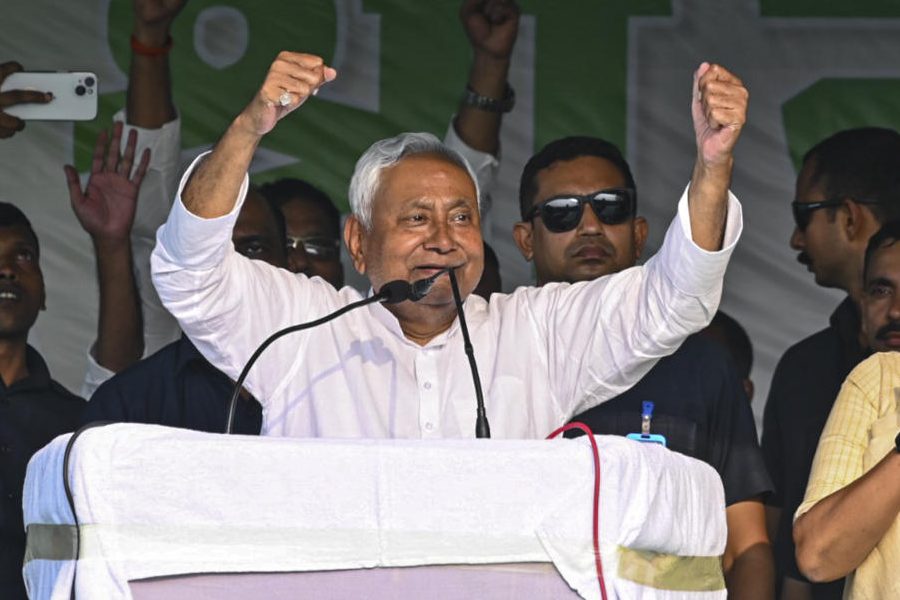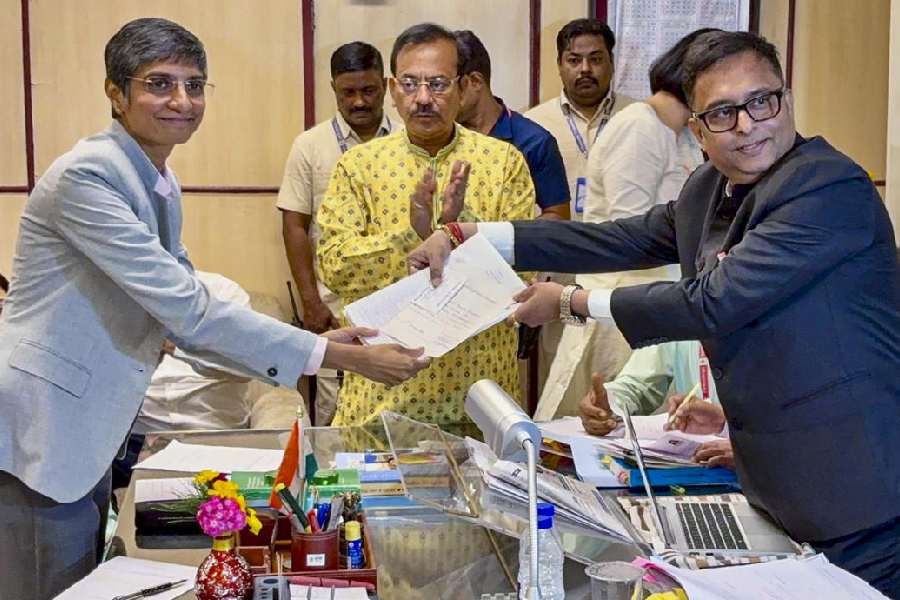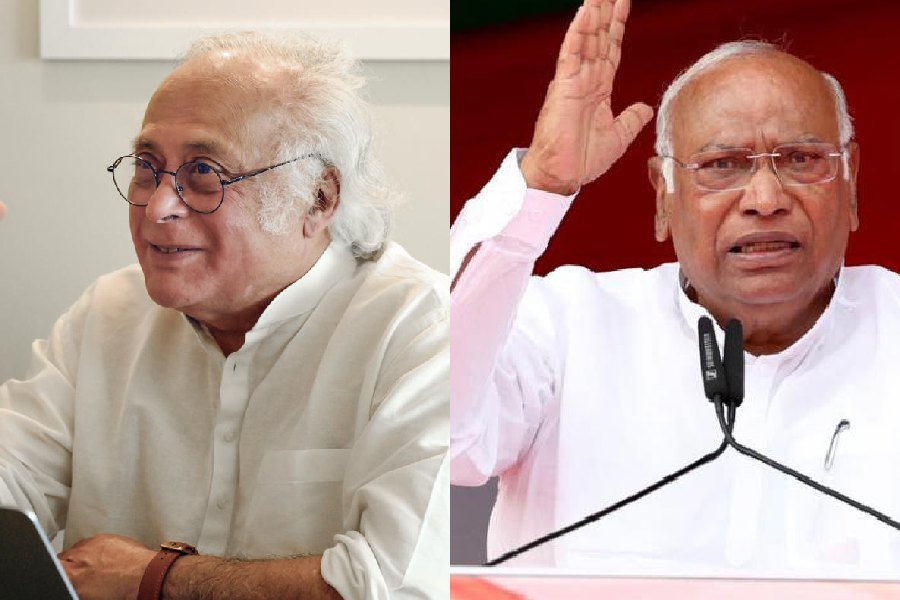 |
Mumbai, Sept. 3: The S.S. Tarapore-headed Committee on Fuller Capital Account Convertibility (FCAC) has set the proverbial cat among pigeons in Dalal Street by recommending that participatory notes (P-notes) should be done away within a span of one year. This may be only a recommendation, but the thought alone has set nerves jangling on the market.
There is valid reason for this fear: if participatory notes are done away with, a significant chunk of the money flowing from foreign institutional investors (FIIs) could be wiped out. There is no precise estimate available as to how much money is flowing through this instrument with conservative estimates putting it at around 25 per cent of the total FII investment, while others say it could top 45 per cent.
But when seen in the context of a net investment figure of Rs 48,801 crore committed by foreign investors during 2005-06 in equities, it is but natural that such a recommendation should spook the market. Foreign institutional holding has risen to about 10 to 15 per cent of the market capitalisation.
'If it is accepted, the markets will tank. This is because FII liquidity, which has been the prime force behind the current bull-run, will take a severe beating,' says the research head from a domestic brokerage.
He adds that close to 50 per cent of FII money has been flowing in through participatory notes. The official has some figures to buttress his argument of how the FCAC's suggestion could cripple the stock markets if implemented. Till April this year, the cumulative net investment made by FIIs stood at Rs 1,93,918 crore.
'If one were to go by estimates given by the Reserve Bank of India (RBI) itself, close to 50 per cent has come out of participatory notes. This means a figure of Rs 97,000 crore. Even if a small portion of this flows out, the impact will be huge on Indian stock markets,' he adds.
P-notes are instruments used by foreign funds (but issued by India-based foreign brokerages) which are not registered with the Securities and Exchange Board of India (Sebi) but want to take an exposure to the country's capital markets. They are like simple derivative instruments that investors use to trade in Indian markets. These investors, known to be largely hedge funds and other foreign players, place their orders through brokerage houses which then repatriate the dividends and capital gains back to these entities.
The biggest advantage for the investor is that one remains anonymous in the entire transaction.
It is this drawback that led the committee to recommend that P-notes should be phased out. 'In participatory notes, the nature of the beneficial ownership or the identity is not known unlike in the case of FIIs. These P-notes are freely transferable and trading of these instruments makes it all the more difficult to know the identity of the owner. It is also not possible to prevent trading in P-notes as the entities subscribing to the P-notes cannot be restrained from issuing securities on the strength of the P-notes held by them. The committee is, therefore, of the view that FIIs should be prohibited from investing fresh money raised through P-notes. Existing P-note holders may be provided an exit route and phased out completely within one year,' the committee said.
It is the implications arising from the implementation of this suggestion that is giving some consolation to marketmen as well. 'It is only a suggestion and moreover, it is unlikely to be implemented as it could have a severe impact on the equity markets that could create other imbalances,' says an analyst. The analyst, however, added that though the stock markets are unlikely to react on Monday to the news, FIIs could be apprehensive over the short-run as the subject of P-notes has been flagged off by the committee.
The stock markets, however, found support in the committee itself. Surjit Bhalla, a member of the committee, said the move to ban P-notes was a significant move backwards. “P-notes primarily exist because of the large transaction costs that the Indian system imposes on foreign residents and corporates, and because of higher capital gains taxes in India than in other emerging markets,” he said.
Bhalla and A.V. Rajwade, another member of the committee, came out in support of P-notes, but the voices emanating from other sources are not clear at this stage. While the finance ministry has given all indications that it is not against this instrument per se, the RBI has on many occasions expressed its opposition, stating that the instrument should be discontinued as the identity of the real investors is not known. Moreover, market regulator Sebi is understood to be framing fresh guidelines on this issue to track such instruments on a real-time basis.
It was the Lahiri Committee on encouraging FII flows and checking the vulnerability of capital markets to speculative flows, which had debated the issue of P-notes in detail. While taking note of the possibility of misuse of the instrument, the panel had favoured the continuation of P-notes with the rider that 'Sebi should have full powers to obtain information regarding the final holder/beneficiaries or of any holder at any point of time in case of any investigation or surveillance action.”
But in a dissent note, the RBI representative on the panel said that the issuance of P-notes should not be permitted. He observed that the main concern of the RBI was that 'the nature of the beneficial ownership or the identity of the investor will not be known, unlike in the case of FIIs registered with a financial regulator.”
The market regulator has already tasted defeat over the issue of P-notes. Last year, the Securities Appellate Tribunal (SAT) said it did not find any reason to uphold the order issued by Sebi on UBS Securities Asia from issuing offshore derivative instruments for one year, highlighting regulatory concerns on the issue of participatory notes.
SAT said the ‘know your client’ requirements prescribed were vague and not defined anywhere by the market regulator.











